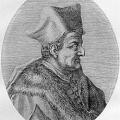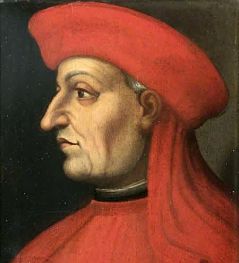330. Republic of Letters: Italian Humanism
Coluccio Salutati and Leonardo Bruni combine eloquence with philosophy, taking as their model the refined language and republican ideals found in Cicero.
Themes:
• G. Griffiths et al. (trans.), The Humanism of Leonardo Bruni (Binghamton: 1987).
• C.S. Celenza, The Intellectual World of the Italian Renaissance: Language, Philosophy, and the Search for Meaning (Cambridge: 2017).
• R. Fubini, Humanism and Secularization from Petrarch to Valla, trans. M. King (Durham NC: 2003).
• A. Rabil, Renaissance Humanism: Foundations, Forms, and Legacy. Vol.1: Humanism in Italy (Philadelphia: 1988).
• J.E. Siegel, Rhetoric and Philosophy in Renaissance Humanism: the Union of Eloquence and Wisdom, Petrarch to Valla (Princeton: 1968).
• N.G. Wilson, From Byzantium to Italy: Greek Studies in the Italian Renaissance (London: 2016).
• R.G. Witt, “In the Footsteps of the Ancients”: the Origins of Humanism from Lovato to Bruni (Leiden: 2001).







Comments
As far as I can make from
As far as I can make from this episode, humanism feels more like a literary and rhetorical movement, rather than being hardcore philosophy. For example, humanists dont have anything to say about the problems of middle ages like the problem of universals. It seems that they are familiar medieval philosophers like Abelard, but they only judge him by the latin he uses.. The fact that their ancient hero is Cicero, and not Plato or Aristotle, says a lot about them..
Is this a conscious attitude? In other words, did they consciously reject the issues of medieval philosophy, or were they just indifferent?
Add new comment